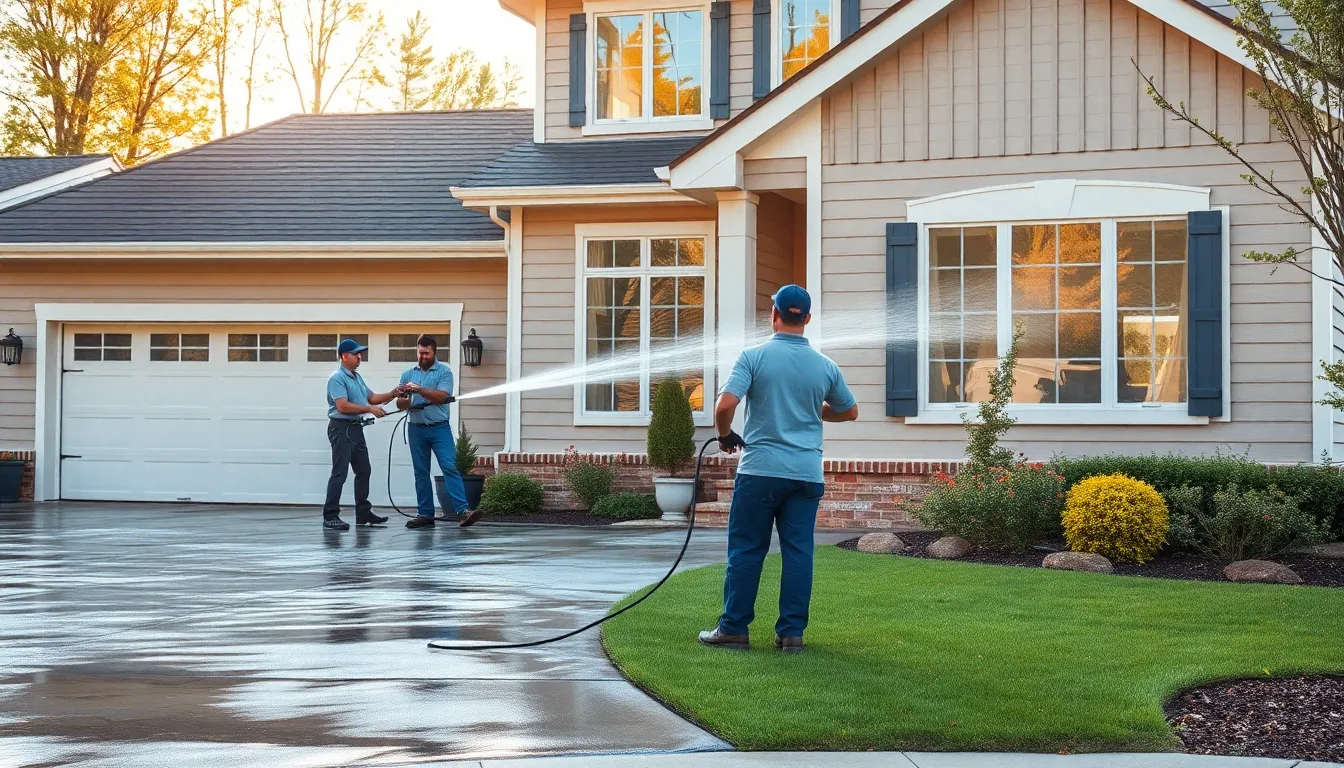Table of Contents
ToggleHigh school life is a rollercoaster ride filled with unexpected twists and turns. From navigating the treacherous hallways to mastering the art of dodging awkward conversations, every day brings a new adventure. It’s a time when juggling homework, friendships, and the quest for popularity feels like a full-time job—without the paycheck.
Overview of High School Life
High school life presents a blend of excitement and hurdles. Students encounter a myriad of challenges daily, impacting their personal and academic experiences.
Social Dynamics
Friendships play a crucial role in high school life. Students engage with diverse peers, forming connections that can shape their identity. Navigating social circles requires understanding and adaptability. Popularity often influences interactions, creating a competitive atmosphere. Cliques may form, leading to feelings of exclusion for some. Balancing friendships is key, as students seek acceptance while maintaining genuine relationships.
Academic Challenges
Academic demands become more intense during high school. Students face increased homework loads, requiring effective time management. Understanding complex subjects like mathematics and science often presents hurdles. Grades can impact college prospects, adding pressure to perform well. Extracurricular activities further complicate schedules, making prioritization essential. Developing study habits and seeking help when needed can alleviate some stress.
Extracurricular Activities

Extracurricular activities enrich high school experiences, offering students opportunities for growth and connection outside the classroom. Engagement in these activities fosters teamwork, leadership, and creativity.
Sports Programs
Athletic programs play a crucial role in high school life. Students participate in various sports, including football, basketball, and soccer, which develop physical fitness and camaraderie. The competition increases school spirit, uniting students around shared goals. Evidence shows that involvement in sports enhances time management skills and reduces stress. Additionally, athletes often benefit from scholarship opportunities, providing financial assistance for college.
Clubs and Organizations
Clubs and organizations cater to diverse interests, promoting social interaction and skill development. Students join academic clubs, such as debate and science, which stimulate critical thinking. Creative outlets include drama and art clubs, enhancing self-expression. Volunteer organizations encourage community service, instilling a sense of responsibility. Data indicates that participation in clubs leads to improved academic performance and stronger interpersonal skills. Each club serves as a platform for students to build lasting friendships while pursuing passions.
Personal Development
High school serves as a critical period for personal growth and self-discovery. Students learn essential skills that prepare them for future challenges.
Time Management Skills
Developing time management skills becomes crucial during high school years. Students juggle homework, extracurricular activities, and social commitments. They prioritize tasks by creating schedules to meet deadlines. Utilizing planners or digital apps helps track assignments and events efficiently. Balancing academic demands with leisure activities fosters discipline and responsibility. Students who master time management often report lower stress levels and better academic performance. An organized approach leads to improved focus and productivity, allowing students to enjoy high school life while achieving their goals.
Building Friendships
Building friendships plays a significant role in shaping high school experiences. Meeting peers from diverse backgrounds fosters personal growth and understanding. Students engage in clubs, sports, and classes, creating opportunities for social interaction. Developing genuine connections enhances emotional well-being and provides support systems during challenging times. Sharing interests and participating in group activities strengthens bonds among students. Positive relationships improve overall happiness and can boost academic performance too. Feeling accepted in social circles helps students develop confidence and navigate the complexities of high school life.
Navigating High School Transitions
High school transitions require adaptability and strong time management skills. Freshman year marks the beginning of a new chapter filled with unique experiences and challenges.
Freshman Year Experience
Entering high school as a freshman can feel overwhelming. Students face the unfamiliar environment of new hallways, larger class sizes, and varied schedules. Building friendships early contributes significantly to their social networks, easing feelings of isolation. Getting involved in extracurricular activities allows students to meet peers with similar interests, fostering connections that can last throughout high school. Support from upperclassmen can serve as invaluable guidance, helping freshmen navigate academic expectations and school culture.
Preparing for Graduation
Preparing for graduation demands thoughtful planning and organization. Students must stay aware of academic requirements, including credit accumulation and standardized tests. By creating a timeline for college applications, they can alleviate last-minute stress. Seeking guidance from school counselors provides insights into college options and scholarship opportunities. Gaining experience through internships or volunteer work enriches resumes and builds skills. Engaging with teachers and mentors throughout this process also enhances students’ support systems, preparing them for post-secondary pursuits.
High school life is a unique journey filled with challenges and opportunities. Students learn to navigate social dynamics while balancing academic demands and personal growth. The experiences gained during these years shape their identities and prepare them for future endeavors.
Engaging in extracurricular activities not only fosters friendships but also enhances essential skills. As students face the pressures of academics and social interactions they develop resilience and adaptability.
Ultimately, high school serves as a pivotal time for self-discovery and preparation for adulthood. With the right support and strategies in place students can thrive in this chaotic yet rewarding environment.






